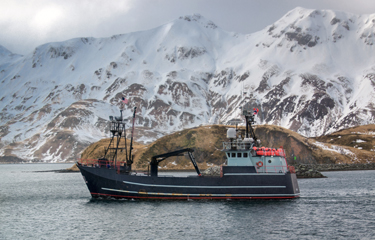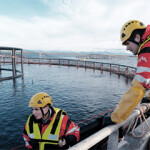Winter red king crab fishery in Alaska’s Bering Sea canceled

Low stocks have prompted the U.S. state of Alaska to cancel the red king crab fishery in Alaska’s Bering Sea for winter 2021-2022 season.
After a review of the final bottom-trawl survey by the National Marine Fisheries Service, Alaska Department of Fish and Game (ADFG) ADFG made the announcement Friday, 3 September, saying the stock was “below the regulatory threshold for opening a fishery.” ADFG said more details about the closure will be provided during the TAC meeting in early October.
It is the first time that the historically lucrative crab fishery, which takes place during the winter months in Bristol Bay, Alaska, has been canceled since 1994. It will not come as a surprise to fishermen and observers of the fishery, however. Management biologists have been cautioning a red king crab closure might be on the horizon at least since 2019, as the stock has been in steady decline.
The total allowable catch (TAC) in 2019-2020 was slashed by 12 percent from the previous year to just 3.8 million pounds, and last winter, fishermen were allotted just 2.648 million pounds. The TAC had already declined precipitously in the previous decade, going from 20 million pounds in the 2008-2009 season to 6.6 million pounds in 2017-2018.
A large average weight on male king crab over the past couple season also had biologists concerned that recruitment of younger crab into the fishery might be low. The 2019-2020 season registered an average catch weigh of 7.1 pounds and a low catch per unit of effort for male red king crab, indicating a heavy reliance on older crab.
Pandemic demand for red king crab combined with low supply had driven prices to record levels. According to ADFG, the statewide ex-vessel price for red kings was USD 11.89 (EUR 10.04) last season, breaking the previous all-time high set the winter before at USD 11.77 (EUR 9.93). Ex-vessel prices in 2008-2009 were closer to USD 5.00 (EUR 4.22).
Photo courtesy of photomatz/Shutterstock






Share